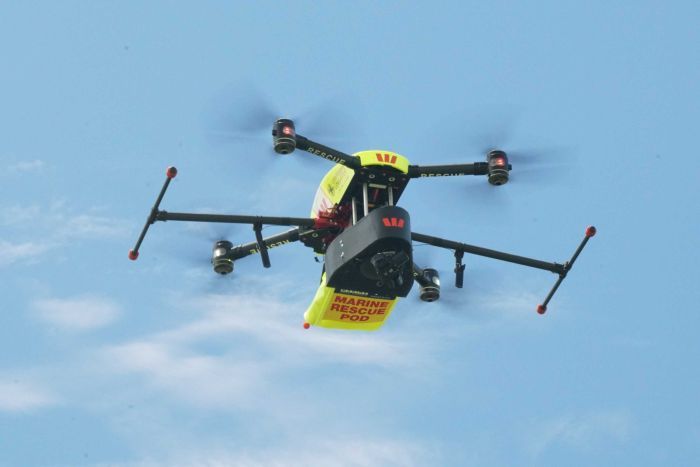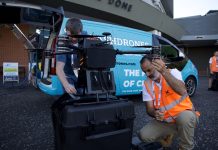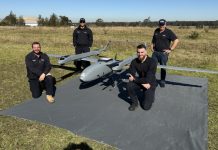The first lifesaver drone pilots have graduated from a special purpose training school.
The Westpac Little Ripper Lifesaving Unmanned Aerial Training School is part of a project for drones to be used to patrol Australian beaches. The drones will be able to spot sharks, deliver help to people in the water, and deliver messages to people who may be drifting into dangerous currents.
The Westpac Little Ripper unmanned aerial system has been under trial since early 2016, under the oversight of CASA. Six full-time lifesavers and six part-time volunteers graduated at a ceremony on February 28 in Port Macquarie, on the NSW north coast.
The trial’s objectives include:
- aerial detection of sharks using real-time sensor and pattern recognition algorithms and decision-support processes
- delivery of pods containing land- and water-based lifesaving devices, such as defibrillators, floatation devices, shark repellent and personal survival kits, for critical situations
- integrating automatic dependent surveillance-broadcast (ADS-B) and traffic collision avoidance system (TCAS) into drone operations
- developing effective integration and coordination with existing emergency and rescue services, such as police, fire and rescue, ambulance, maritime safety and Surf Life Saving NSW.
The Little Ripper fleet of 35 aircraft includes internal combustion-powered single rotor drone helicopters that can carry loads of up to 15 kg and electric-powered multicopters with a load capacity of 3.5 kg.





